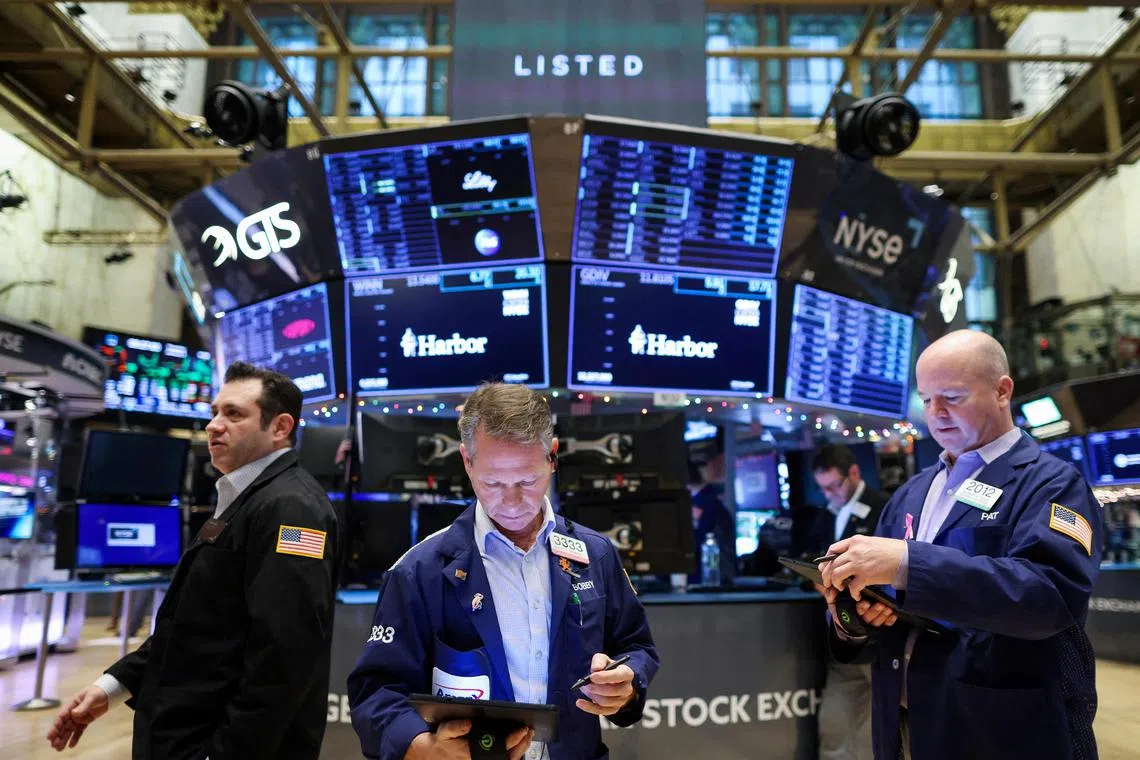Global IPO market revival undermined by banking, recession risks
Sign up now: Get ST's newsletters delivered to your inbox

The subdued activity follows on from 2022, when high inflation and aggressive rate hikes sapped investors’ risk appetite.
PHOTO: REUTERS
LONDON – Banking turmoil and recession risks are spelling trouble for the global initial public offering (IPO) market, keeping it mired in a slump even after investors started the year thinking that the worst of the stock rout might be over.
Companies have raised just US$19.7 billion (S$26.3 billion) via IPOs in 2023, according to data compiled by Bloomberg.
That is down 70 per cent year on year, and the lowest comparable amount since 2019.
The steepest fall was seen in the United States, where only US$3.2 billion has been raised.
The subdued activity follows on from 2022, when high inflation and aggressive rate hikes by central banks sapped investors’ risk appetite.
A strong equity rally at the start of 2023, driven by optimism about China’s emergence from its zero-Covid policy
Troubles in the banking sector following the collapse of some mid-sized lenders in the US, Credit Suisse Group’s travails,
“Rates is the number one issue, and there is a clear debate around how long the tightening lasts or changes direction and at what speed,” said Mr Udhay Furtado, co-head of equity capital markets for Asia-Pacific at Citigroup.
“There are a number of things people will need to see, including central bank direction, to ascertain whether it’s the second, third or fourth quarter,” he said, referring to when the IPO window might reopen.
“At this point, it looks like it’s going to be back-ended.”
The stability that IPOs need has been sorely lacking, with a closely watched volatility gauge spiking well above 20 in March following the collapse of Silicon Valley Bank (SVB) and other regional US lenders.
And there are signs that banking troubles are having an impact on companies’ IPO plans.
Oldenburgische Landesbank, a private equity-backed German bank, has paused work on a planned IPO that was expected to take place as early as May because of investors’ concerns over the health of the global banking system, Bloomberg News reported on Thursday.
“There’s still so much uncertainty in what’s going to happen at the back end of this year that I think it’s really causing investors to be quite nervous,” said Ms Stephanie Niven, portfolio manager, global sustainable equities, at Ninety One.
“This feels like an uncomfortable time to be putting capital into businesses we don’t know.”
The one bright spot in equity capital markets (ECM) activity has been in share sales in listed companies.
Secondary offerings have fetched US$76 billion in 2023, a 48 per cent increase from a year ago, the data shows.
That includes a block trade in Japan Post Bank that could raise as much as 1.3 trillion yen (S$13.2 billion), the biggest such sale in nearly two years.
Shareholders and companies were quick to sell stock to take advantage of the equities rally at the beginning of the year and secure funding in a rising-rate environment.
The higher cost of debt also means that some companies have been unwinding cross-holdings to free up capital for debt repayments and other funding needs.
Fomento Economico Mexicano raised €3.7 billion (S$5.3 billion) from a concurrent equity and equity-linked offering in Heineken in February, the biggest such deal in Europe, Middle East and Africa since 2004.
Other large selldowns included a US$2.4 billion block trade in London Stock Exchange Group and Belgium offloading US$2.3 billion in BNP Paribas stock.
Companies have also turned to convertible bonds, which allow them to borrow more cheaply, given that the securities carry a call option.
Firms from German food delivery company Delivery Hero to Chinese video entertainment company iQIYI and electric-vehicle maker Rivian Automotive have all sold the bonds.
Some US$6.4 billion has been raised in convertibles globally in 2023, data compiled by Bloomberg shows.
Even after the volatility caused by the collapse of SVB, bankers are optimistic that ECM activity will pick up as soon as there is a window, particularly for quick, overnight follow-on transactions, while convertibles will remain an attractive funding instrument.
“We remain cautiously optimistic on the outlook for issuance activity,” said Mr Lawrence Jamieson, head of ECM for Europe, the Middle East and Africa at Barclays, last Wednesday.
“The banking contagion that started with the collapse of SVB seems more symptomatic of a confidence shock rather than a credit shock.
“What we’ve seen over the last couple of days is markets working through the various tail risks that emerged,” he added.
“If volatility also continues to dampen, this could allow for more normalised ECM activity to resume as early as next week.” BLOOMBERG


